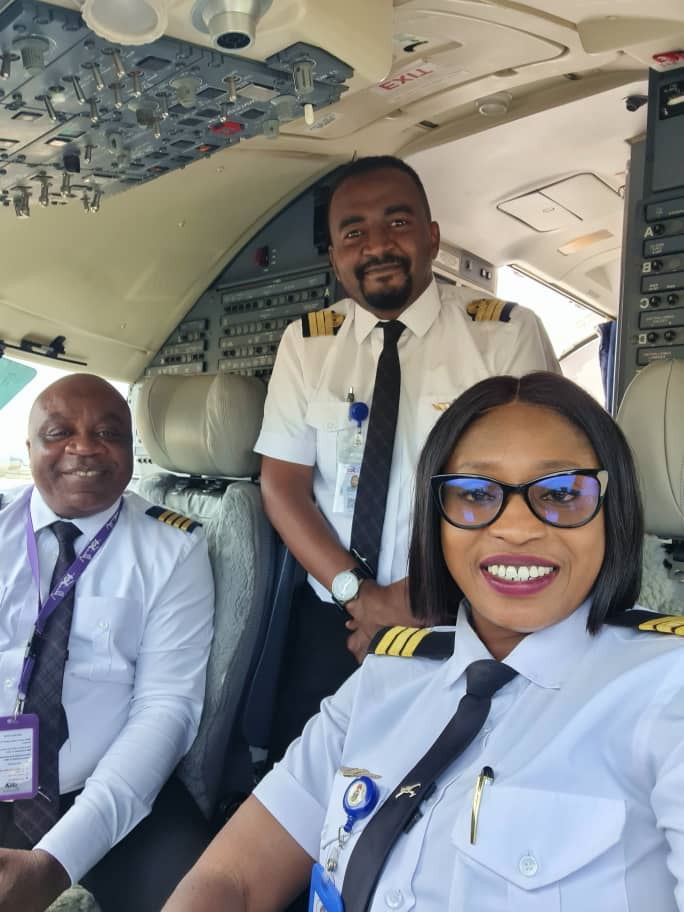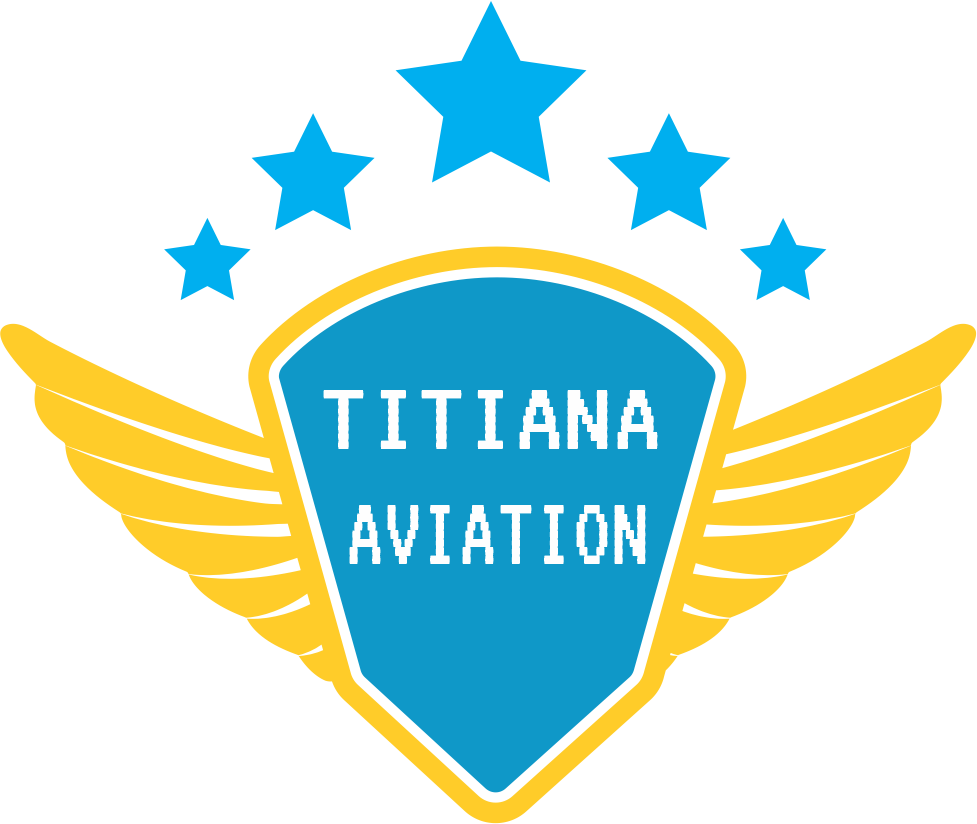Aviation Consultancy

Aviation Consultancy
Our consultancy services involve providing expert advice and solutions to various
stakeholders in the aviation industry, including airlines, airports, government agencies, aviation authorities, and other related organizations,
and even individuals desirous of aviation training and certifications. The consultancy services aim to address a wide range of issues, enhance
operational efficiency, ensure regulatory compliance, and support strategic decision-making. Our consultancy services play a vital role in helping
aviation organizations navigate the complexities of the industry, enhance operational efficiency, ensure safety and compliance, and achieve
strategic objectives. By leveraging our expert knowledge, data-driven insights, and tailored solutions, we offer valuable support services to
airlines, airports, and other stakeholders, ultimately contributing to the overall growth and success of the aviation industry in the
Nigerian economy.
Key Areas of our Consultancy Services
Aircraft Purchase/Procurement
We assist clients in acquiring the perfect aircraft to meet their operational needs. Our aircraft purchase/procurement consultancy services involve the process of acquiring aircraft to meet the needs of individuals, airlines, governments, corporations, or other organizations. It requires careful planning, thorough analysis, and strategic decision-making. This process is complex and involves several key steps, including needs assessment, market research, financial analysis, negotiations, and final acquisition. By following a structured procurement process, organizations and individuals can ensure they acquire the most suitable aircraft to meet their needs, optimize costs, and enhance their operational capabilities.
Operational Efficiency
- Process Optimization: Analysing and improving operational processes within airlines and airports to enhance efficiency and reduce costs.
- Performance Benchmarking: Comparing an organization’s performance against industry standards and best practices to identify areas of process re-engineering and improvement.
Safety and Compliance
- Safety Management Systems (SMS): Developing and implementing comprehensive safety management systems to ensure compliance with international safety standards.
- Regulatory Compliance: Assisting organizations in understanding and adhering to national and international aviation regulations set by authorities like the NCAA, FAA, EASA, and ICAO.
Strategic Planning
- Market Analysis: Conducting market research and analysis to support strategic planning and decision-making.
- Business Strategy Development: Crafting long-term business strategies to achieve growth and competitive advantage.
Financial Management
- Cost Management: Identifying cost-saving opportunities and optimizing financial performance.
- Revenue Management: Implementing strategies to maximize revenue through effective pricing, capacity management, and ancillary services.
Airport Planning and Development
- Master Planning: Developing comprehensive master plans for airport expansion, modernization, and development.
- Infrastructure Development: Advising on the design and development of airport infrastructure, including terminals, runways, and support facilities.
Airline Management
- Fleet Planning: Assisting airlines in fleet acquisition, management, and optimization.
- Route Network Planning: Developing optimal route networks to enhance connectivity and profitability.
Environmental Sustainability
- Sustainable Practices: Advising on the implementation of environmentally sustainable practices in aviation operations.
- Carbon Footprint Reduction: Developing strategies to reduce carbon emissions and achieve sustainability goals.
Technology and Innovation
- Digital Transformation: Guiding organizations through the adoption of new technologies and digital solutions to improve operational efficiency and customer experience.
- Innovation Management: Promoting innovation within aviation organizations to stay ahead in a competitive industry.
Training and Development
- Staff Training Programs: Designing and delivering training programs to enhance the skills and knowledge of aviation personnel.
- Leadership Development: Providing leadership training and development programs for management and executive teams.
Professional Training Advisory and Referrals
- Pilot Training
- Private Pilot License (PPL): Basic license for recreational flying.
- Commercial Pilot License (CPL): Allows pilots to be employed as commercial pilots.
- Airline Transport Pilot License (ATPL): The highest level of pilot certification, required for airline captains.
- Instrument Rating (IR): Qualification for flying under instrument flight rules (IFR).
- Multi-Engine Rating (MER): Certification to operate multi-engine aircraft.
- Flight Instructor Training
- Certified Flight Instructor (CFI): Trains pilots to become flight instructors.
- Certified Instrument Instructor (CFII): Specializes in teaching instrument flight rules (IFR).
- Multi-Engine Instructor (MEI): Trains pilots to teach multi-engine aircraft operation.
- Cabin Crew Training
- Flight Attendant Courses: Cover safety procedures, customer service, emergency response, and first aid.
- Advanced Training: Includes specialized courses like VIP service, language skills, and cultural awareness.
- Aircraft Maintenance Training
- Aircraft Maintenance Technician (AMT): Training for technicians to maintain and repair aircraft.
- Avionics Technician: Specializes in aircraft electronics and instrument systems.
- Certifications: Obtaining licenses such as the FAA’s Airframe and Powerplant (A&P) certification.
- Air Traffic Control (ATC) Training
- Basic ATC Training: Covers fundamental principles of air traffic control, including radar and non-radar control.
- Advanced ATC Training: Specializes in specific areas such as approach control, tower operations, and en-route control.
Our Consultancy Methods and Approaches
- Consultation and Assessment
- Needs Assessment: Conducting thorough assessments to understand the specific needs and challenges of the client.
- Customized Solutions: Developing tailored solutions based on the unique requirements of each client.
- Data Analysis and Research
- Quantitative and Qualitative Analysis: Using data analysis techniques to gather insights and inform decision-making.
- Industry Research: Conducting research on industry trends, market conditions, and competitive dynamics.
- Project Management
- Implementation Support: Providing support throughout the implementation of recommended solutions.
- Monitoring and Evaluation: Continuously monitoring progress and evaluating the effectiveness of implemented strategies.
- Stakeholder Engagement
- Collaboration: Working closely with stakeholders, including management teams, regulatory bodies, and other partners, to ensure alignment and successful execution of projects.
- Communication: Maintaining open lines of communication to keep all parties informed and engaged throughout the consultancy process.
Benefits of Our Consultancy Services
- Expertise and Experience: Access to specialized knowledge and industry expertise that may not be available in-house.
- Objective Perspective: External consultants provide an unbiased, objective perspective, which can be crucial for identifying issues and opportunities.
- Expert Knowledge: Our professional tour guides offer valuable insights and enhance the travel experience with their expertise and local knowledge.
- Efficiency and Effectiveness: Consultants bring proven methodologies and best practices that can lead to more efficient and effective solutions.
- Cost Savings: Identifying cost-saving opportunities and optimizing operations to improve financial performance.
- Risk Mitigation: Helping organizations navigate regulatory requirements and implement robust safety and risk management practices.
- Strategic Advantage: Supporting strategic planning and decision-making to enhance competitiveness and achieve long-term organizational goals.
